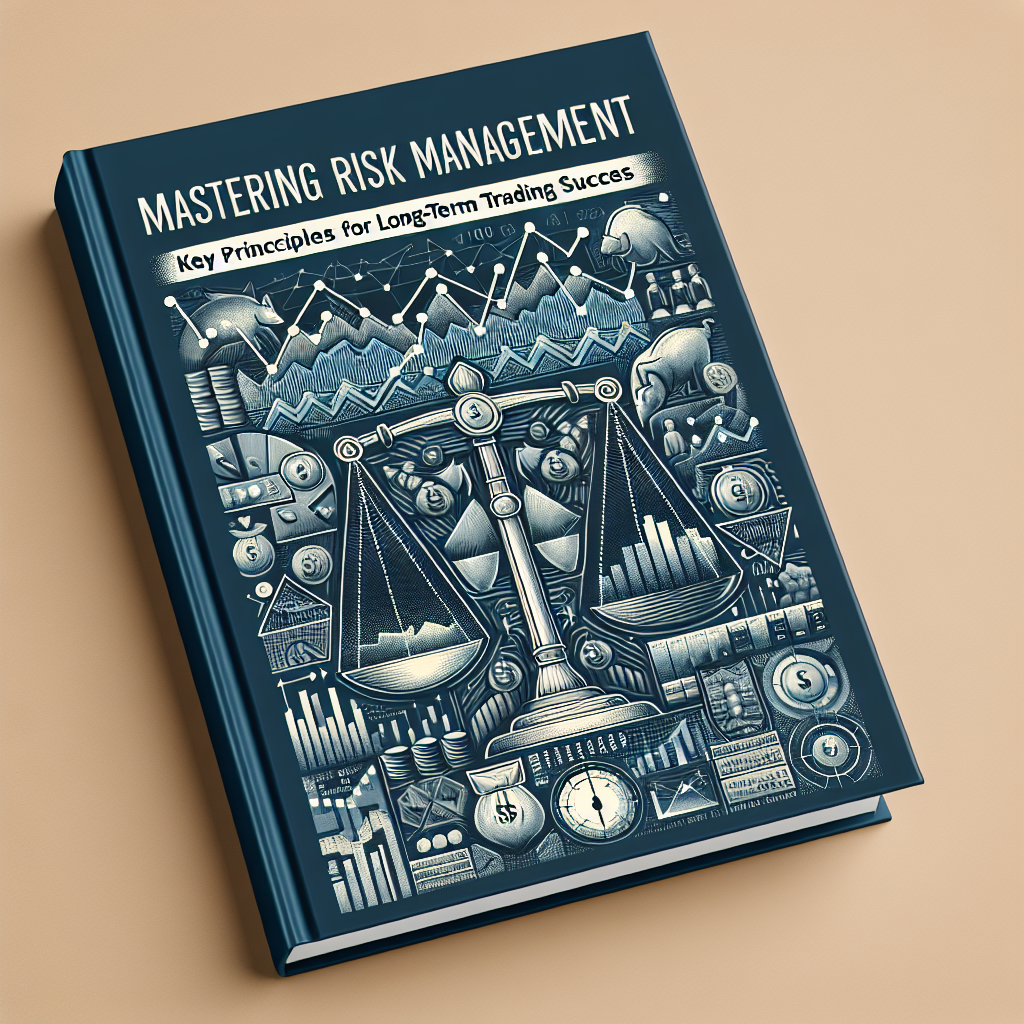**Risk Management Principles for Trading Success**
In the ever-changing world of trading, the concept of risk management acts as a safeguard—a foundational practice that helps traders navigate the unpredictable ups and downs of the financial markets. Whether you’re trading stocks, forex, crypto, or other assets, risk management serves as a guiding principle to protect your capital and ensure that trading remains a long-term pursuit, not a short-lived gamble.
### 1. **Start Small and Build Gradually**
One of the most critical takeaways for any aspiring trader is to start small and understand your risk tolerance. Udo Depic, founder of Skypex, emphasizes the importance of avoiding the temptation to bet it all on a single trade. He shared his personal story of an early mistake in his trading career where he invested his entire fund in one leveraged trade, only to lose it all in minutes. This misstep taught him the importance of spreading risk across multiple positions and scaling up only after achieving a solid foundation.
If you’re new to trading, the recommendation is simple yet powerful: never risk more than you can afford to lose. Limiting your initial trades to smaller percentages of your overall capital—maybe 1% to 5%—can make a world of difference in avoiding catastrophic losses. Start small, build confidence, and never let greed dictate your actions.
### 2. **Understand the Role of Time**
A recurring theme in successful trading is the importance of time management, both in life and trading decisions. Many traders, especially those juggling full-time jobs or family obligations, feel they lack the time to commit to learning and trading effectively. However, Udo provides a reality check: the real issue is often inefficient use of your time. Hours lost to social media, Netflix, or gossip sessions could be redirected into building your trading knowledge.
The most successful traders are those who consistently carve out time for purposeful learning and disciplined trading. As Udo explains, time management doesn’t just free up hours for focused analysis; it also keeps you mentally prepared and emotionally balanced, critical attributes for making calculated decisions under pressure.
### 3. **Stick to a Strategy, Not Emotions**
Trading without a clear strategy is like driving in unfamiliar territory without a map. Traders often fall into common traps—such as chasing losses, over-leveraging their positions, or making emotionally reactive decisions when markets turn volatile. These behaviors, born of panic or greed, often lead to financial setbacks.
The solution lies in defining and sticking to a trading strategy. This includes setting predefined entry and exit points, maintaining a clear risk-reward ratio, and practicing disciplined use of tools like stop-loss orders to cap potential losses. As Udo highlights, one golden rule is to avoid using trading profits for personal expenses until you’ve grown your portfolio to a sustainable size. This reinvestment strategy helps build long-term wealth without depleting your resources prematurely.
### 4. **Diversify and Know Your Market**
Another key concept in risk management is diversification. Spreading investments across different markets or assets reduces exposure to any single point of failure. However, diversification works best when paired with market knowledge. Udo advises traders to invest only in markets or industries they personally understand and are drawn to, as familiarity with sectors or regions can give you an informational edge.
For example, emerging markets, though often overlooked, offer unique opportunities for traders willing to research and understand them. Whether it’s forex involving local currencies or equities tied to regional growth trends, the key is to study, invest, and trade based on data and logic, not hearsay or hype.
### 5. **Accept Losses and Learn from Them**
Every trader, no matter how experienced, faces losses. The real difference between success and failure lies in how they handle and learn from them. Losing 10% or 20% of your trading capital can feel discouraging, but with proper risk management, such losses won’t derail your progress or overwhelm your mindset.
Udo stresses the importance of psychological resilience in trading. He advises traders to view losses as learning experiences rather than permanent setbacks. Equally important is avoiding “revenge trades”—those emotionally-driven attempts to recoup losses at any cost. Instead, step back, reassess your strategy, and approach the next trade with renewed focus and calm.
### 6. **Risk What You Can Afford to Lose**
One of the most practical risk management principles is understanding opportunity cost versus financial necessity. Udo repeatedly emphasizes that trading should not be your primary source of income to cover essential expenses like rent or bills. When traders rely on profits for survival, they often make impulsive, high-risk decisions under stress.
To maintain financial security, use trading as a means to supplement income or as a path toward long-term wealth, rather than as a replacement for monthly earnings. Keeping your day job or another steady income source will allow you to trade with a clearer head and focus on strategic growth instead of desperate short-term gains.
### 7. **The Importance of Mindset and Patience**
Finally, achieving success in trading is more about mindset than market timing. Many traders aspire to “get rich quick,” only to find the opposite by taking undue risks. Conversely, those focused on controlled, consistent growth fare better over the long run. Remember, as Udo aptly puts it, “There’s no elevator to wealth, health, and happiness—it takes hard work, passion, and commitment.”
Risk management requires you to think long-term, resist impulsive decisions, and continuously learn. Success isn’t about flashy gains but about building sustainable, disciplined strategies that work years down the line.
In conclusion, risk management is the backbone of effective trading. By starting small, managing your time, sticking to defined strategies, and continuously learning, you can navigate even the most volatile markets with confidence. When in doubt, remember that the ultimate goal isn’t to beat the market, but to protect your capital and let it grow methodically. Only through patience and persistence can trading evolve from a risky venture to a calculated, rewarding pursuit.

